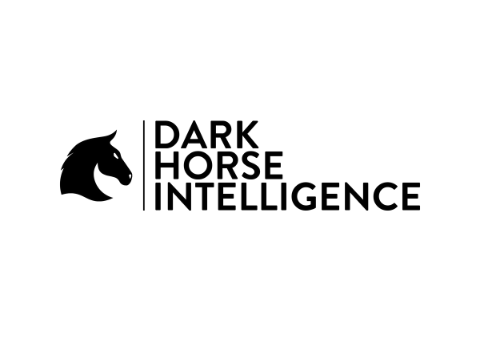

Chargebacks occur when a buyer requests a reversal of a credit card payment that is issued from the bank. This was created as a way to protect consumers from merchant scams but has since evolved into a way for individuals to commit what is commonly known as “friendly fraud.”
Friendly fraud occurs when a consumer abuses the chargeback process put in place to protect them. This is often caused by an individual claiming legitimate purchases are fraudulent and stealing the product they were given. Once a chargeback has been issued, your chargeback merchant rights become relatively limited. That said, it is important to ensure you are protected by employing chargeback insurance.
There are several components to consider when it comes to choosing the right chargeback insurance for you. Here’s what you need to know:
How Chargeback Insurance Works
Chargeback insurance protects a business that accepts credit card payments. The idea of chargeback insurance is to protect merchants and retailers against transaction frauds, such as the use of unauthorized credit cards.
This type of insurance also covers claims resulting due to the merchant’s liability towards the service bank. The insurance coverage will apply under several circumstances, such as:
- Illicit usage of lost or stolen debit and credit cards before the cardholder reported the theft of the card
- Cybercriminals using credit card number generators or counterfeit credit cards
- Customer making changes to shipping address completing the purchase
- Mismatched signatures on the file
Merchants can claim chargeback insurance:
- Over the price of a stolen service or product
- Over the loss of profit
Typically a chargeback insurance coverage only reimburses losses pertaining to credit card transactions where a purchase happened through the insurance providers’ own payment gateway or payment processor.
With that in mind, it’s important to differentiate between chargeback insurance and a chargeback warranty as they protect you in different ways and can be easily confused.
Chargeback insurance
Typically, chargeback insurance protects acquiring banks. Here an acquirer receives chargeback insurance when a merchant goes under while still owing money and chargeback fees. This can be irrelevant from a merchant’s perspective.
Chargeback Warranty
Businesses sometimes use the terms “chargeback warranty” and “charge insurance” interchangeably. However, in theory, a chargeback warranty is a policy that reimburses you for a fraudulent chargeback. While this is extremely helpful for merchants and retailers, you may find yourself at the receiving end of an unpleasant surprise when you purchase a policy assuming it covers everything when it does not.
You’ll need to carefully research before choosing chargeback insurance to know what is covered.
What Coverage Insurance Doesn’t Cover?
There are many benefits to getting chargeback insurance coverage. However, it will not eliminate every problem you might face when it comes to chargeback incidents and frauds.
Here are a few instances where your chargeback insurance coverage might not protect you.
- The chargeback insurance only applies when a customer files a chargeback request. Thus, it is best for an insurance provider to set the security filter and parameters high, enabling them to catch more fraud cases.
- Not all chargeback insurance coverages allow for manual review of the policies. Some chargeback insurance policies do not provide coverage on financial transactions flagged by their system. However, they can later approve them during a post-manual review.
- Chargeback insurance will only cover fraud-related chargebacks. A chargeback insurance policy will not cover any chargebacks due to a merchant’s or retailer’s errors, such as sending damaged or incorrect goods, failing to deliver goods on time or at all, and incorrect recurring payments. So, make sure to check the chargeback codes to help you identify which ones your chargeback insurance policy does cover.
- Your chargeback insurance policy will not cover any payment transaction that did not get approval through the company’s tool. But, if a payment transaction gets approved through the company’s gateway or payment processor and still turns out to be fraudulent, the insurance provider will accept the liability for those chargebacks.
- The chargeback insurance policy does not cover any orders modified after the payment approval. Suppose a customer contacts a merchant after making a payment to change details of the order, and the merchant agrees to change them. In that case, the merchant will be liable for any losses pertaining to that particular order.
- Your chargeback insurance policy may also apply restrictions on certain products and geographical locations. Their e-commerce tools may place restrictions on applying for chargeback insurance in certain extremely risky situations and locations. This includes chargebacks related to certain products known to be amongst fraudsters’ favorite target or certain areas known for higher fraud rates.
Is Chargeback Insurance Right For You?
Now that you know what your chargeback insurance may or may not cover, as a large retailer, you should ask yourself two questions before committing to chargeback insurance:
Do most of your chargebacks come from friendly fraud?
Do you frequently find that customers make an online purchase using a credit card and then ask their banks for a chargeback after receiving a product or service? If the answer is yes, you should seriously consider investing in an adequate chargeback insurance policy.
Do you have a significant amount of legitimate fraud cases?
In instances of chargeback fraud, do they involve identity theft, credit or debit card frauds, etc.? If that is the case, getting a chargeback insurance coverage may help you protect and reduce the number of legitimate fraudulent attempts going unnoticed.
If you are a large retailer facing other unique incidents that make your business vulnerable to chargeback frauds, you can always discuss how a chargeback insurance provider can protect your interest.
Prevent Chargeback Fraud before it Happens
Now that you understand how chargeback insurance can protect your business from chargeback fraud, it is still imperative to protect yourself on the front end by employing fraud prevention efforts such as an identity authentication solution. Intellicheck’s ID fraud prevention solutions are one proven method to catch fraudsters early.
Intellicheck’s ID authentication solution can catch fraudsters with 99% accuracy so you can protect yourself from gaps in your chargeback insurance coverage. Want to start catching fraud in real-time both in-person and online?







